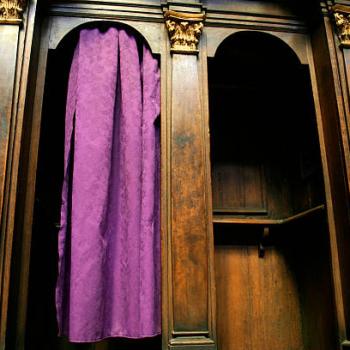[Note: This is not actually “the post” that I recently said I was excited about, but a different post that was sitting in drafts at the time. I realized that they actually go together thematically and decided to publish this one first. Broadly, both are reflections on famous people, life, death, and eternity.]
On December 9th, 1980, Paul McCartney stood on a cold London street, surrounded by reporters. They wanted to interview him about John Lennon’s assassination, thirty-two years ago today. He had first heard the news that morning and spent the rest of the day in the studio. Caught on camera at the end of the day, he looks tired and worn-out. You can see him resolutely maintaining a fixed expression, mechanically chewing a piece of gum. He speaks with concentrated nonchalance, balanced on a knife-edge of pent-up emotion. “Very shocked, you know. Terrible news.” They ask him what he was working on in the studio that day. He replies, “Um, I was just listening to some stuff, you know, I just didn’t want to sit at home.” “Why?” they nag stupidly. “Look, I just didn’t feel like it.” A couple more painfully pointless questions before he desperately extracts himself with these now-famous parting words: “Yeah… drag, isn’t it? Okay, cheers, buh-bye.” Then he ducks away and disappears into a cab.
It’s heartbreaking. Though he was too shocked to know or care what he said, Paul McCartney had summed up life without Jesus Christ in a few glib words. To become an idol, make loads of money, wreck your mind with drugs, get shot by a deranged fan, and have that be the whole story of your life? Yeah, it’s a drag isn’t it? Okay, cheers. The end. We’re done here.
Solomon would have agreed. In Ecclesiastes, he tells us that all men are at the mercy of time and chance. Death comes as the end to us all. And the dead “know not any thing, neither have they any more a reward; for the memory of them is forgotten. Also their love, and their hatred, and their envy, is now perished; neither have they any more a portion for ever in any thing that is done under the sun.” (Ecc. 9:5-6) The great irony in Lennon’s death is that he had made a mockery of God and Christianity all his life, even boasting that the Beatles’ popularity had surpassed that of Jesus and that Christianity was a passing thing. But where is John Lennon now?
I often think about the mercilessness of time and death when I think of Elvis Presley as well. For him, it is even sadder to think of since unlike Lennon, he seemed to begin his career with something like a genuine faith in Christ, and then somewhere on the road to fame and fortune he lost himself in the world. By the end of his life, he was a broken man. I defy anyone to watch this clip without shedding a tear—stumbling through one of his last performances, he butchers his mid-song narration in the first number so completely that he abandons it altogether, with a mumbled “Aw, the heck with it.”
Idolatry is a curse. It curses him that gives and him that takes. As Presley himself once said in an interview, “It’s hard to live up to the image.” Indeed.
There’s a reason why Jesus tells us to set our sights on things eternal. It’s because when all is said and done, all that’s left is the eternal. Solomon’s wisdom gets the first half of it dead right—the dead shall have no more part in any thing under the sun. But then it is Christ who brings the other half to make the whole truth: That God so loved the world, so loved John Lennon and Elvis Presley and every other broken, fallen human being in need of Jesus, that he gave them and us a chance to live on under a new sun, a new day. The question is, how many will let go of that which they can plainly see in faith that the invisible will one day be the greater reality?
On November 8th, exactly one month before John Lennon was shot and killed, another icon had taken his last breath in a Mexico hospital. But his life ended very differently. Tomorrow, I will tell you his story.
















